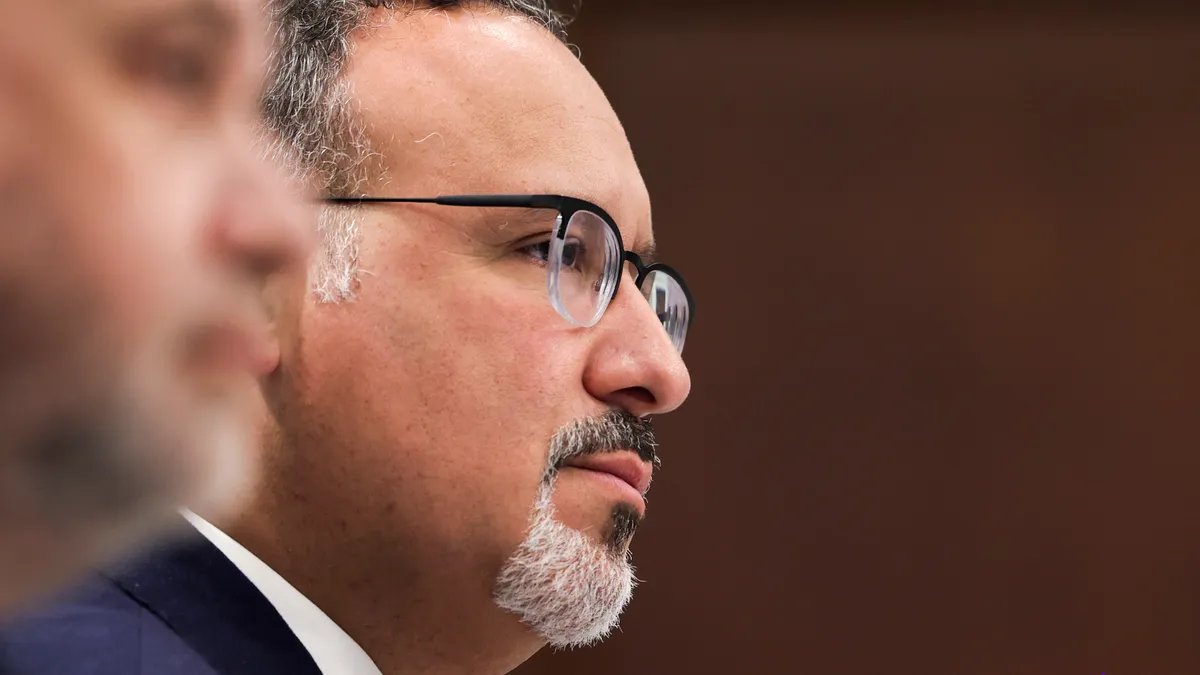In July, the U.S. Department of Education proposed regulations meant to crack down on for-profit colleges converting to nonprofit schools in name only. So far, the department’s ideas have drawn mixed reactions from lawmakers, colleges and policy advocates.
For-profit colleges are run like businesses to generate profit for owners or shareholders, while nonprofit colleges are supposed to reinvest their surplus revenues back into their missions. But some policy advocates say many for-profit colleges are converting into nonprofit institutions even though their operations are improperly benefiting insiders, such as their former owners.
The Education Department’s regulatory proposals attempt to squash potentially problematic deals.
Under the draft regulations, for instance, the agency would generally not consider a college a nonprofit if it owes money to a former owner. The rules would also require a college changing hands to provide financial collateral if the Education Department deems the transaction risky. And an institution would have to notify students that it was being purchased three months in advance of the sale.
While several policy advocates hailed the potential changes, they argued the regulations contain loopholes that will allow for-profit colleges to continue gaming the system. On the other hand, some colleges and higher education associations said the proposals go too far and put unnecessary restrictions on institutions.
Public comment on the regulations closed last month. The Education Department must now respond to all the feedback it received before issuing final rules, which could take effect as soon as July 2023.
A step in the right direction?
The Century Foundation, a left-leaning think tank, has been warning about improper nonprofit conversions for years. In a public comment, two of the organization’s policy experts — senior fellows Robert Shireman and Carolyn Fast — applauded parts of the Education Department’s proposal and said it seeks to address “a serious problem.”
Shireman and Fast argue blocking nonprofit conversions that result in an institution owing money to its former owner will help prevent colleges from being overvalued when they are sold. Overvaluing a college can benefit the owners selling it.
“In many cases, the transaction involves the sale of intangible assets, such as the reputation of the school or the financial value of being accredited, which are ‘inherently difficult to value,’ making them highly vulnerable to abuse,” they wrote.
They cited Keiser University, in Florida, as one example. Keiser converted to a nonprofit when it was sold about a decade ago. The university's intangible assets were valued at $536 million around the time of the sale, but they were reduced a few years later by roughly $250 million. The original valuation helped justify a $300 million promissory note — an IOU to the institution’s former owners — according to a 2021 post from The Century Foundation.
Too many carve-outs?
Rep. Bobby Scott, a Democrat from Virginia, is among the policymakers who have been calling for greater scrutiny of nonprofit conversions. He holds an influential post as the chair of the House Committee on Education and Labor.
In a public comment, Scott supported several of the Education Department’s proposals but argued that the agency would create too many carve-outs that would allow insiders to benefit from nonprofit conversions. Shireman and Fast voiced similar opinions.
Specifically, Scott said the Education Department’s proposals regulating revenue-share agreements didn’t go far enough.
Revenue-share agreements are the cornerstones of some nonprofit conversions. In 2017, Purdue University announced it was buying Kaplan University, a for-profit, to build a public online college. In exchange, the university's former owner received a nominal fee of $1 — and a potentially valuable cut of revenue for 30 years.
This model has been copied by other colleges seeking nonprofit status.
In 2018, Grand Canyon University separated from its former owner but entered into a revenue-share agreement with it in return for services such as counseling and marketing. The Education Department later denied the university’s request to be considered a nonprofit, arguing that the revenue-share deal was intended to drive shareholder value. Grand Canyon has been fighting that decision in court, in part arguing that the Internal Revenue Service approved its nonprofit status.
Policy advocates have been urging the Education Department to further crack down on such deals. In its draft regulation, the agency said colleges would generally not be considered nonprofits if they held revenue-share agreements with their former owners and other insiders — though its carved out an exception for those priced at fair market value.
Scott and others argue that this exception would still create a pass for insiders. He called on the department to narrow the carve-out to apply only to agreements covering tangible assets — such as land, buildings and equipment — rather than intangible goods.
“These transactions are extremely difficult to valuate, especially when insiders are involved,” Scott wrote. “I urge the Department to remove these market price exemptions from the definition of nonprofit.”
Criticism abounds
Several commentators believe the proposed regulations go too far. Some took issue with draft language that would define a nonprofit college as one where no net earnings can benefit any private entity or person.
In a public comment, the National Association of College and University Business Officers argued this definition should only apply to colleges that were previously for-profit institutions. Otherwise, the regulation could affect nonprofit schools' constituents who have a “beneficial stake in its revenue,” including students, faculty and board members.
The National Association of Independent Colleges and Universities, which represents over 1,700 private nonprofit institutions, struck a harder tone. In a public comment, NAICU President Barbara Mistick wrote that the Education Department’s proposed definition conflicts with the one laid out by federal law.
“The new language proposed by the Department is an expansion beyond what is currently in statute and in current regulations,” Mistick wrote.
Every institution — public or private — has relationships with private businesses, Mistick argued, sparking concerns about how the Education Department will apply the proposed prohibition going forward.
“The broadening of the language opens the door for future administrations to do even more,” Mistick wrote, “which we fear could leave nonprofit institutions defending their tax status with the Department.”



















